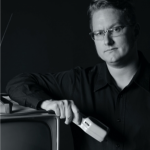Engineering ethics education typically focuses on decisions by individual engineers and case studies of disasters. This does not reflect the everyday decisions that practicing engineers must make, and neglects the fact that most engineers work on teams rather than alone. The focus on safety and disaster prevention leaves little time for discussing pervasive social impacts of engineering and technology. Our research seeks to fill these gaps by determining how ethical decision making occurs in team settings, how it can be influenced by ethics-focused team members, and to what extent a social context influence consideration of social impacts. Over three years, we observed ethics discussions among teams of engineering students. First, we observed undergraduates during their Capstone Design project. We contrasted typical teams and teams with an additional team member trained and educated in engineering ethics. Second, we observed university research laboratory groups composed of undergraduate students, graduate students and post docs in their spontaneous and regular conversations. Data analysis suggests that engineering students have a narrow understanding of engineering ethics, and that their explicit and implicit understanding can be in conflict. We also observed that an engineering expert can improve the breadth and depth of conversations. We also observe that engineering students rarely if ever discuss ethical or social implications of their work during routine activities. This also points to the benefits of facilitated discussions.
AUTHORS
|
|
|
|
|
|
|




